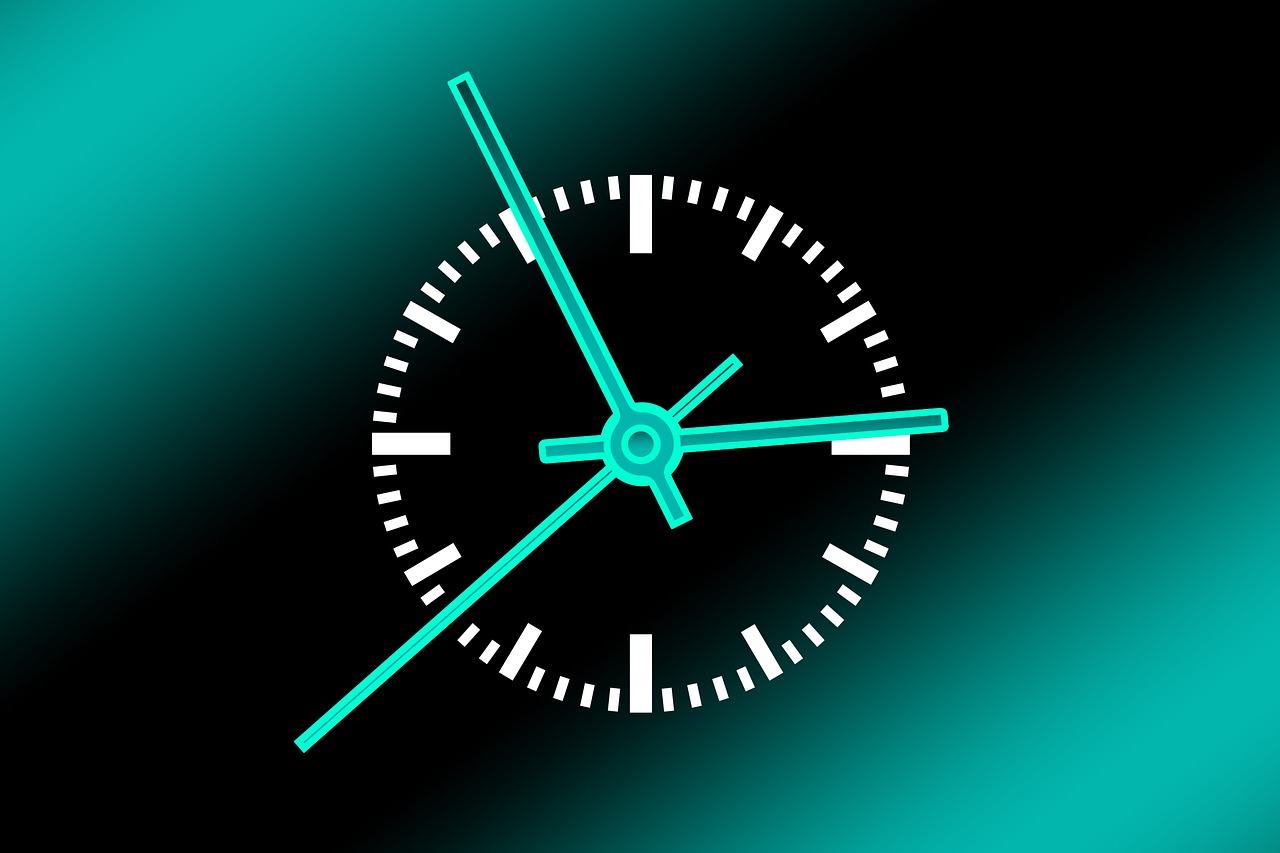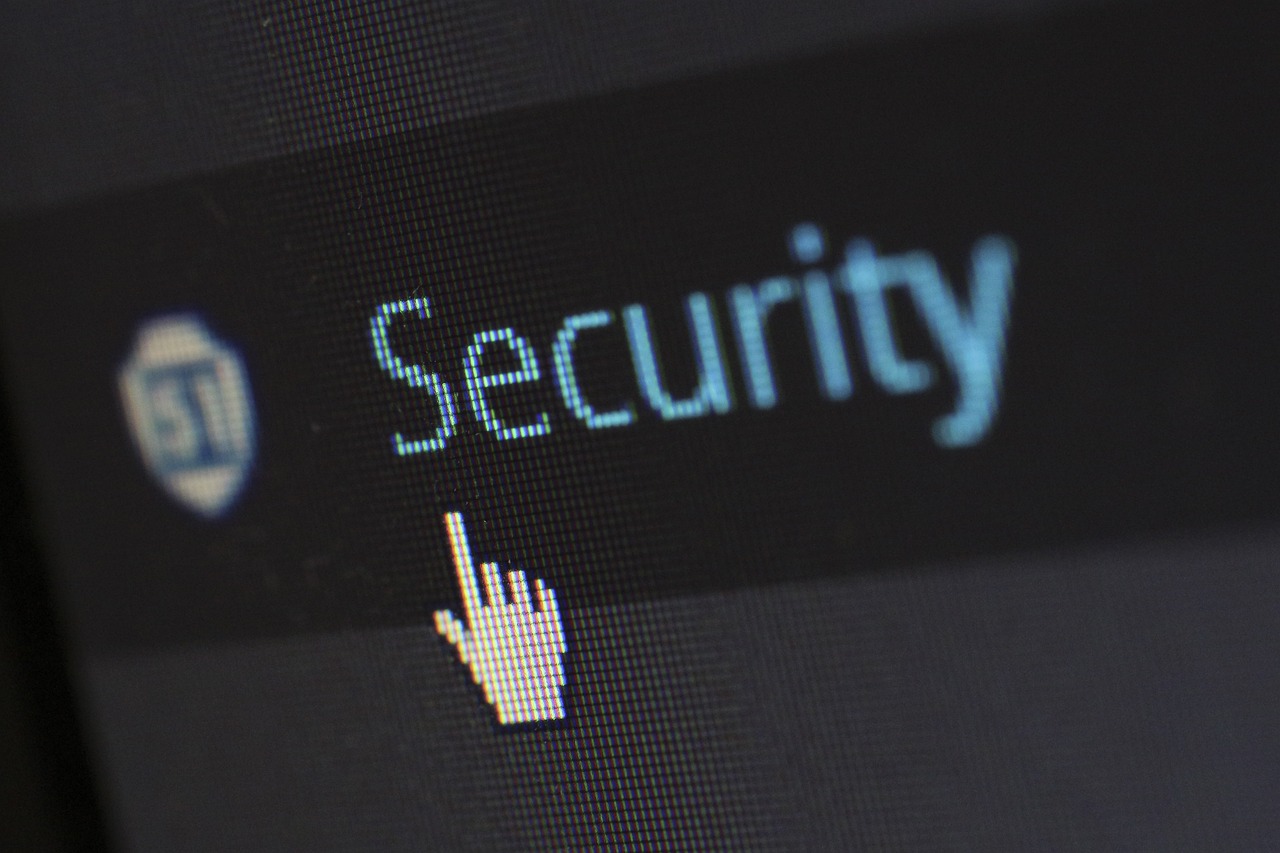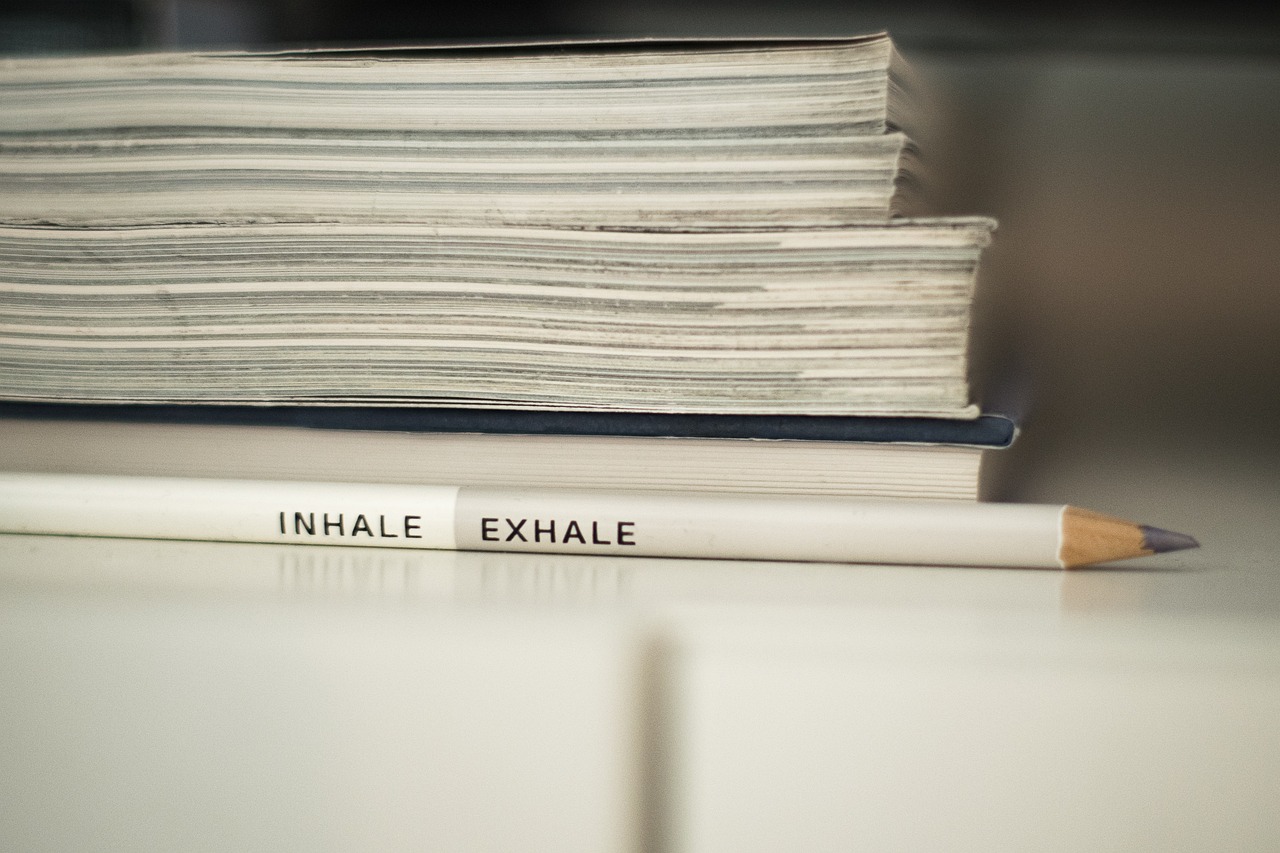How to Manage Anxiety in Everyday Life
Anxiety is a common experience that many people face in their everyday lives. It can manifest in various forms, from mild unease to overwhelming panic. Managing anxiety effectively is essential for maintaining mental well-being and overall quality of life. By implementing strategies to cope with anxiety, individuals can improve their daily functioning and lead a healthier lifestyle.
One of the first steps in managing anxiety is recognizing the triggers that contribute to feelings of unease or worry. By identifying common situations or thoughts that provoke anxiety, individuals can learn to manage them proactively, leading to better mental well-being. This awareness allows for the development of coping mechanisms to address anxiety triggers effectively.
Practicing mindfulness techniques is another valuable strategy for managing anxiety in everyday life. Techniques such as meditation, deep breathing exercises, and grounding practices can help individuals stay present and reduce symptoms of anxiety. By incorporating mindfulness into daily routines, individuals can cultivate a sense of calm and reduce the impact of anxiety on their overall well-being.
Establishing healthy habits is crucial for supporting mental health and reducing anxiety levels over time. Regular exercise, proper nutrition, and sufficient sleep are essential components of a healthy lifestyle that can contribute to improved mental well-being. By prioritizing self-care and healthy habits, individuals can effectively manage anxiety and enhance their overall quality of life.
Seeking professional help is an important aspect of managing anxiety for many individuals. Therapy, counseling, or medication can provide valuable support and guidance in addressing anxiety symptoms. Mental health professionals offer expertise and resources to help individuals develop coping strategies and improve their mental well-being.
Building a strong support system is also beneficial for managing anxiety in everyday life. Cultivating relationships with friends, family, or support groups can provide opportunities to share feelings, gain perspective, and receive encouragement during anxious moments. A supportive network can offer reassurance and understanding, helping individuals navigate challenging situations with greater ease.
Engaging in relaxation activities can be a helpful way to reduce stress and distract from anxious thoughts. Hobbies such as yoga, painting, or listening to music can promote relaxation, creativity, and a sense of well-being. By incorporating enjoyable activities into daily routines, individuals can create moments of calm and respite from anxiety.
Setting realistic goals is essential for preventing feelings of overwhelm and anxiety about the future. By establishing achievable objectives and breaking them down into manageable tasks, individuals can create a sense of progress and accomplishment. Setting realistic goals promotes a sense of control and direction, reducing anxiety and increasing motivation.
Practicing self-compassion is a key aspect of managing anxiety and promoting self-care. Developing a kind and understanding relationship with oneself involves acknowledging imperfections and treating oneself with the same care as a loved one. By practicing self-compassion, individuals can cultivate resilience, self-acceptance, and emotional well-being.
Embracing uncertainty is an important mindset shift that can help reduce anxiety levels. Learning to accept and adapt to uncertainties in life involves letting go of the need for control and embracing the unpredictability of the future. By embracing uncertainty, individuals can cultivate resilience, flexibility, and a sense of openness to new possibilities.

Recognizing Anxiety Triggers
Effective strategies to cope with anxiety and improve daily functioning for a healthier lifestyle.
Identifying common situations or thoughts that trigger anxiety is crucial in managing this condition effectively. By recognizing these triggers, individuals can proactively address them, leading to better mental well-being. It's like being a detective in your own mind, uncovering the clues that set off the anxiety alarm.
Imagine anxiety triggers as hidden landmines in your daily life. Without proper awareness, they can unexpectedly explode, causing turmoil and distress. By learning to spot these triggers, you can navigate around them skillfully, diffusing potential explosions before they occur.
One way to identify anxiety triggers is to keep a journal. Documenting your thoughts, feelings, and the situations that precede anxious episodes can provide valuable insights. Patterns may emerge, revealing specific triggers that consistently lead to heightened anxiety levels.
Additionally, paying attention to physical sensations can also help pinpoint triggers. Notice how your body reacts in different situations. Is there a tightness in your chest, racing heartbeat, or shallow breathing when anxiety strikes? These physical cues can serve as early warning signs, alerting you to potential triggers.
Moreover, reflecting on past experiences can shed light on recurring themes that trigger anxiety. Are there certain environments, people, or activities that consistently provoke anxious feelings? By recognizing these patterns, you can develop strategies to manage or avoid these triggers effectively.
In summary, recognizing anxiety triggers is the first step towards mastering anxiety management. By understanding what sets off your anxiety, you can take proactive steps to defuse these triggers and regain control over your mental well-being.

Practicing Mindfulness Techniques
Effective strategies to cope with anxiety and improve daily functioning for a healthier lifestyle.
Mindfulness techniques are powerful tools that can help you stay present and reduce anxiety symptoms in your daily life. By incorporating practices such as meditation and deep breathing, you can cultivate a sense of calm and awareness that can positively impact your mental well-being.
Imagine your mind as a clear blue sky, with clouds representing your anxious thoughts. Mindfulness allows you to observe these clouds passing by without getting caught up in them, helping you maintain a sense of peace and clarity even in the midst of chaos.
One effective way to practice mindfulness is through meditation. Find a quiet space, sit comfortably, and focus on your breath. As thoughts arise, acknowledge them without judgment and gently guide your attention back to your breath. This practice can help quiet the mind and reduce the grip of anxiety.
Deep breathing exercises are another valuable technique to incorporate into your daily routine. By taking slow, deep breaths, you can activate your body's relaxation response, calming your nervous system and easing feelings of tension and stress.
Additionally, mindfulness can be integrated into everyday activities such as eating, walking, or even washing dishes. By bringing your full attention to the present moment and engaging your senses, you can anchor yourself in the here and now, fostering a sense of peace and grounding.
Remember, practicing mindfulness is a skill that requires patience and consistency. Start with small moments of mindfulness throughout your day and gradually expand your practice. Over time, you may find that mindfulness becomes a natural and effective way to manage anxiety and enhance your overall well-being.

Establishing Healthy Habits
Effective strategies to cope with anxiety and improve daily functioning for a healthier lifestyle.
When it comes to managing anxiety, establishing healthy habits plays a crucial role in supporting your mental well-being. By incorporating routines for exercise, proper nutrition, and sleep into your daily life, you can effectively reduce anxiety levels over time.
Exercise is not just beneficial for physical health but also has a significant impact on mental well-being. Engaging in regular physical activity releases endorphins, the feel-good hormones, which can help alleviate stress and anxiety. Whether it's going for a jog, practicing yoga, or hitting the gym, finding an exercise routine that you enjoy can be a great way to combat anxiety.
Proper nutrition is another key aspect of establishing healthy habits. The food we eat can directly affect our mood and energy levels. Incorporating a balanced diet rich in fruits, vegetables, whole grains, and lean proteins can provide the necessary nutrients to support your mental health. Avoiding excessive caffeine, sugar, and processed foods can also help in stabilizing mood and reducing anxiety.
In addition to exercise and nutrition, prioritizing adequate sleep is essential for managing anxiety. Lack of sleep can exacerbate feelings of stress and anxiety, making it crucial to establish a bedtime routine and ensure you get enough rest each night. Creating a peaceful sleep environment, avoiding screens before bedtime, and practicing relaxation techniques can contribute to better sleep quality and overall mental well-being.
By incorporating these healthy habits into your daily routine, you can create a strong foundation for managing anxiety and promoting a healthier lifestyle.
Q: Can healthy habits really help in managing anxiety?
A: Yes, healthy habits such as regular exercise, proper nutrition, and sufficient sleep can have a positive impact on managing anxiety by improving overall mental well-being and reducing stress levels.
Q: How long does it take to see the benefits of establishing healthy habits?
A: The benefits of healthy habits may vary for each individual, but with consistency and dedication, you can start experiencing positive changes in your mental health and anxiety levels within a few weeks to a few months.
Q: Can I incorporate healthy habits into my busy schedule?
A: Absolutely! You can start by making small changes such as taking short breaks for physical activity, preparing healthy meals in advance, and creating a calming bedtime routine to prioritize sleep, even with a busy schedule.

Seeking Professional Help
Effective strategies to cope with anxiety and improve daily functioning for a healthier lifestyle.
Dealing with anxiety can be overwhelming, and sometimes it's essential to seek professional help to effectively manage it. Therapists, counselors, or psychiatrists are trained to provide support and guidance tailored to your specific needs. They can offer valuable insights, coping mechanisms, and tools to address your anxiety symptoms.
Therapy sessions provide a safe space for you to explore your thoughts and emotions, understand the root causes of your anxiety, and develop strategies to cope with it. Whether through cognitive-behavioral therapy, mindfulness techniques, or medication, mental health professionals can assist you in navigating the challenges of anxiety.
It's important to remember that seeking professional help is a sign of strength, not weakness. It takes courage to acknowledge when you need assistance and take proactive steps towards improving your mental well-being. By reaching out to a therapist or counselor, you are prioritizing your mental health and taking a positive step towards managing your anxiety effectively.
If you're unsure where to start, consider reaching out to your primary care physician for a referral or researching therapists in your area. Remember, you don't have to face anxiety alone, and seeking professional help is a proactive and empowering choice on your journey towards better mental health.
Have questions about managing anxiety? Here are some common FAQs:
- How do I know if I need professional help for my anxiety? - If your anxiety is significantly impacting your daily life, relationships, or overall well-being, it may be beneficial to seek professional guidance.
- What are the different types of therapy available for anxiety? - Therapies such as cognitive-behavioral therapy (CBT), exposure therapy, and mindfulness-based therapies are commonly used to treat anxiety disorders.
- Can medication help with anxiety? - In some cases, medication prescribed by a psychiatrist can be effective in managing anxiety symptoms, especially when combined with therapy.
- How long does it take to see progress in therapy? - The timeline for progress varies for each individual, but consistent therapy and practice of coping strategies can lead to noticeable improvements over time.

Building a Strong Support System
Building a strong support system is crucial in managing anxiety and improving overall mental well-being. It involves cultivating meaningful relationships with individuals who can provide emotional support, understanding, and encouragement during challenging times. These connections act as a safety net, offering a sense of belonging and security in the face of anxiety.
When building a support system, it's essential to surround yourself with people who uplift and empower you. Friends, family members, or support groups can offer different perspectives and insights, helping you navigate through anxious moments with greater clarity. By sharing your feelings and experiences with trusted individuals, you can alleviate the burden of anxiety and feel less isolated in your struggles.
Effective communication is key in establishing a strong support system. Being able to express your thoughts and emotions openly with others can foster deeper connections and strengthen relationships. It's important to listen actively to the concerns of your support network as well, creating a reciprocal exchange of support and understanding.
In addition to personal relationships, professional support can also play a significant role in building a strong support system. Seeking guidance from therapists, counselors, or mental health professionals can provide valuable tools and strategies for managing anxiety effectively. These professionals offer a safe space for exploration and growth, helping you develop coping mechanisms and resilience in the face of anxiety.
Moreover, engaging in support groups or community organizations focused on mental health can offer a sense of camaraderie and shared experiences. Connecting with individuals who are going through similar challenges can provide a sense of validation and solidarity, reinforcing the idea that you are not alone in your struggles.
By actively nurturing and expanding your support system, you create a network of individuals who can provide emotional support, practical advice, and a sense of community. Building a strong support system is an ongoing process that requires effort, communication, and reciprocity. Ultimately, having a robust support network can significantly enhance your ability to cope with anxiety and navigate life's uncertainties with greater resilience.

Engaging in Relaxation Activities
Engaging in relaxation activities is essential for managing anxiety and promoting overall well-being. These activities serve as a break from the hustle and bustle of daily life, allowing you to unwind and recharge both mentally and physically. Whether it's practicing yoga, engaging in painting sessions, or simply listening to soothing music, relaxation activities can help calm the mind, reduce stress levels, and distract from anxious thoughts.
Yoga, known for its combination of physical postures, breathing techniques, and meditation, is a popular relaxation activity that promotes mindfulness and relaxation. It not only helps in improving flexibility and strength but also aids in reducing anxiety and promoting a sense of inner peace. Engaging in a yoga session can be a rejuvenating experience, allowing you to focus on the present moment and let go of worries.
Painting or engaging in other forms of creative expression can also be a therapeutic way to relax and unwind. The act of creating art can be meditative, allowing you to channel your emotions and thoughts onto a canvas. Whether you are a seasoned artist or a beginner, the process of painting can be a cathartic experience, providing a sense of accomplishment and joy.
Listening to music is another powerful relaxation activity that can have a profound impact on your mood and emotions. Music has the ability to evoke various feelings and memories, serving as a form of emotional release. Creating a playlist of calming tunes or your favorite songs can help create a soothing atmosphere, allowing you to escape from the stresses of the day and find solace in the melodies.
Engaging in relaxation activities is not just a luxury but a necessity for maintaining good mental health. By incorporating these activities into your daily routine, you can create moments of peace and tranquility amidst the chaos of life. Whether it's a few minutes of deep breathing, a yoga session, or an evening of painting, taking time for yourself to relax is crucial for managing anxiety and fostering a sense of well-being.

Setting Realistic Goals
Effective strategies to cope with anxiety and improve daily functioning for a healthier lifestyle.
Setting realistic goals is a crucial step in managing anxiety and maintaining a sense of control in your life. When you set achievable objectives, you prevent yourself from feeling overwhelmed and anxious about the future. It's like breaking down a big task into smaller, manageable parts. This way, you can approach challenges one step at a time, making progress and reducing anxiety along the way.
Imagine trying to climb a mountain without any rest stops or checkpoints. It would be daunting and exhausting. However, if you set realistic goals, each milestone becomes a moment of celebration and motivation to keep going. By acknowledging your achievements, no matter how small, you build confidence and resilience against anxiety.
Moreover, setting realistic goals involves understanding your limitations and capacities. It's about finding a balance between ambition and practicality. Just like a skilled archer aims for a target within reach, you aim for goals that challenge you but are within your grasp. This way, you avoid setting yourself up for failure and the resulting anxiety that comes with it.
Think of setting realistic goals as planting seeds in a garden. You nurture them with care, providing the right amount of water and sunlight for growth. Similarly, by nurturing your goals with patience and dedication, you cultivate a sense of purpose and direction in your life, reducing the uncertainty that often fuels anxiety.
- How long does it take to see improvements in anxiety symptoms?
- Is it normal to experience setbacks in managing anxiety?
- Can self-compassion help in reducing anxiety levels?
Improvements in anxiety symptoms can vary from person to person. Some individuals may notice positive changes within a few weeks of implementing coping strategies, while others may take longer. Consistency and patience are key in managing anxiety effectively.
Yes, setbacks are a common part of the anxiety management process. It's important to remember that progress is not always linear, and occasional setbacks are natural. The key is to learn from these experiences, adjust your strategies if needed, and continue moving forward in your journey towards better mental well-being.
Absolutely. Practicing self-compassion involves treating yourself with kindness and understanding, especially during challenging times. By acknowledging your own humanity and imperfections, you create a supportive inner dialogue that can help alleviate anxiety and foster self-acceptance.

Practicing Self-Compassion
Practicing self-compassion is a vital aspect of managing anxiety and promoting overall well-being. It involves treating oneself with kindness and understanding, especially during challenging times. By developing a compassionate relationship with oneself, individuals can navigate through anxious moments with greater ease and resilience.
Self-compassion entails acknowledging one's imperfections and shortcomings without harsh self-judgment. Instead of being overly critical, individuals practicing self-compassion offer themselves the same care and empathy they would extend to a loved one facing difficulties. This shift in mindset can significantly reduce feelings of inadequacy and self-doubt that often contribute to anxiety.
Moreover, self-compassion involves embracing the concept of being human, with all its vulnerabilities and complexities. It allows individuals to recognize that experiencing anxiety or facing challenges is a natural part of life, rather than a sign of personal failure. By accepting one's humanity and inherent imperfections, individuals can cultivate a sense of inner peace and self-acceptance.
Practicing self-compassion also involves engaging in self-soothing activities that promote emotional well-being. This can include activities such as journaling, taking a warm bath, going for a nature walk, or engaging in creative pursuits. These practices help individuals nurture themselves and create moments of calm amidst the chaos of daily life.
Furthermore, self-compassion encourages individuals to set realistic expectations for themselves and celebrate small victories along the way. By acknowledging their efforts and progress, individuals can boost their self-esteem and confidence, leading to a more positive outlook on life. This, in turn, can help reduce anxiety levels and foster a greater sense of emotional stability.
In essence, practicing self-compassion is about treating oneself with the same kindness, care, and understanding that one would offer to a dear friend in need. By cultivating a compassionate relationship with oneself, individuals can build resilience, enhance self-esteem, and navigate the challenges of anxiety with greater ease and self-assurance.

Embracing Uncertainty
Life is full of uncertainties, and learning to embrace them can significantly reduce anxiety levels. Imagine uncertainty as a rollercoaster ride - thrilling, unpredictable, and sometimes scary. Instead of gripping tightly to the safety bar, try loosening your grip and enjoying the twists and turns. Accept that not everything can be controlled or predicted. Just like a captain navigating through stormy seas, you must trust your ability to adapt and steer through the waves of uncertainty.
Embracing uncertainty is like dancing in the rain without an umbrella. It's about letting go of the fear of getting wet and instead feeling the refreshing droplets on your skin. Uncertainty can be an opportunity for growth and discovery. It's like opening a mystery box, never knowing what treasures or challenges lie inside. By accepting uncertainty, you open yourself up to new possibilities and experiences that you may have never imagined.
Think of uncertainty as a puzzle with missing pieces. Instead of obsessing over the gaps, appreciate the beauty of the incomplete picture. Embrace the unknown as a blank canvas waiting for your unique brushstrokes. Uncertainty is not the enemy but a companion on the journey of life, nudging you to step out of your comfort zone and explore uncharted territories.
Frequently Asked Questions
- What are some common anxiety triggers?
Common anxiety triggers can vary from person to person but may include situations like public speaking, social interactions, financial stress, or health concerns. It's important to identify your personal triggers to better manage and cope with anxiety.
- How can mindfulness techniques help with anxiety?
Mindfulness techniques such as meditation and deep breathing can help reduce anxiety symptoms by promoting relaxation, increasing self-awareness, and fostering a sense of calmness in the present moment. These practices can be effective in managing anxiety in daily life.
- Why is it important to establish healthy habits for managing anxiety?
Healthy habits such as regular exercise, balanced nutrition, and sufficient sleep are essential for supporting mental health and reducing anxiety levels over time. These habits contribute to overall well-being and can help alleviate the impact of anxiety on daily life.
- When should I consider seeking professional help for anxiety?
If anxiety significantly interferes with your daily functioning, persists over a long period, or causes distress and impairment in various aspects of your life, it may be beneficial to seek help from mental health professionals. Therapy, counseling, or medication can be effective in managing anxiety.
- How can building a strong support system help with anxiety?
A strong support system consisting of friends, family, or support groups can provide emotional support, understanding, and encouragement during anxious moments. Sharing feelings and experiences with others can help alleviate feelings of isolation and promote a sense of connection and belonging.
- What are some relaxation activities that can help reduce anxiety?
Engaging in relaxation activities such as yoga, painting, listening to music, or spending time in nature can help relax the mind, reduce stress, and distract from anxious thoughts. Finding activities that bring joy and relaxation can be beneficial for managing anxiety.
- How can practicing self-compassion benefit individuals dealing with anxiety?
Practicing self-compassion involves treating oneself with kindness, understanding, and acceptance, especially during challenging times of anxiety. Developing a compassionate relationship with oneself can help reduce self-criticism and promote a sense of inner peace and resilience.
- Why is embracing uncertainty important in reducing anxiety levels?
Embracing uncertainty involves accepting the unpredictable nature of life, letting go of the need for control, and adapting to change with resilience. By acknowledging and embracing uncertainties, individuals can reduce anxiety related to fear of the unknown and develop a more flexible mindset.



















